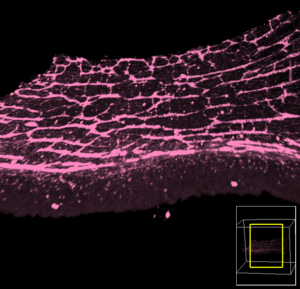The way we interact on a daily basis with other people, depends strongly on our core values, morals and ethics. Therefore, it is important for leaders to identify those, make sure they are appropriate to the context that is being dealt with and understand the role that values, morals and ethics play into each person’s decision making.

My core values.
Related to my personality, my professional and personal experiences, I identified five of my core values. To me, communication, empathy, inclusion, realism and improvement are some of my main core values.
- Communication is the way to exchange information, beliefs, expectations, knowledge, thoughts. Communication requires at least two people interacting, with one person being the transmitter and the second person the receiver. I believe communication in interdisciplinary biomedical sciences is a key to problem solving when it is effective, which is why communication is so important to me. However, it also brings its own challenges, because the way the transmitter is transmitting the information and the way the receiver will interpret it could result in a lot of varying positive or negative outcomes. Acknowledging and being aware of these facts is important as a leader to make sure the appropriate level of communication is established when working with a group of people.
- Empathy is defined as the ability to understand and share the feelings of another. To me, a good leader is able to see each team member as a person, and understand their feelings and point of view to mitigate any arising conflicts with other team members. It is also important to me that in an interdisciplinary team, all members are seen as equals and I believe empathy is a core value needed to achieve that goal.
- Inclusion is related to empathy in the sense that a main priority for a leader should be to ensure every team member feels equals to its peers, and comfortable enough to participate in creation of innovations or problem solving.
- I believe that the capability to envision the future for a leader, and sharing that vision to the leader’s team members is key. However, this vision needs to be realistic for the team members to believe in it. I think that even when trying to do the impossible, one should always be able to see the realism in it in order to be successful.
- Finally, improvement is a core value to be because a good leader should be able to take on challenges, to retrospect, and to have the wish to make things better.
Ethics.
I had heard about the ethic work previously but what I found interesting this semester is the systemic approach we have been taught. In fact, working in an interdisciplinary team brings challenges, and biomedical sciences also often comes with ethical decision making. One might find themselves thinking about a challenge that seems to be right versus right, or wrong versus wrong. To make a decision, I found helpful to think about identifying the real facts in the situation, characterizing the ethical dilemma, and identifying all of the stakeholders who could be affected by a decision. I think that a good leader should be disciplined and go through all of these steps, carefully, one by one. A good leader should also try to be creative and find available alternatives and perhaps use good communication and negotiation skills. Finally, I believe that a skilled leader also needs to consider fairly all individuals, and make sure that personal integrity is respected as much as laws and rules.
